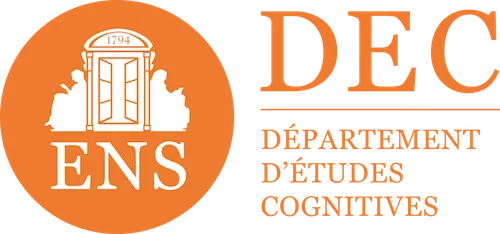

To fight against forgetting, put your memory to the test
A little bit of forgetting can be beneficial for learning: it is by making the effort to find what you have learned from memory that you will consolidate your progress in the long term.
Let's say you're training a young sales manager. In preparation for an important meeting, your young colleague writes down in a notebook all the price elements of the offer offered by your company. You brief him for the appointment by playing the role of the customer: every time you ask him for prices, he checks his notebook. On the fateful day, he realizes that he forgot to bring his precious work tool. Unable to find the right prices in memory, he is forced to kick in the sidelines in front of the customer, who leaves with the impression that he has wasted his time. How could this have been avoided? According to research, you could have better anchored the information in your protege's memory by encouraging him to get into the habit of remembering prices by himself rather than consulting his notebook at every opportunity.
The effort of salvage Is one of most fundamental pillars of learning : if you never make this effort, it is much more difficult for you to Mobilize what you've learned over the long term. La salvage consists of Recover in his memory The concepts learned and return them with as little help as possible. For example, when you need to calculate the volume of a solid, you'll look up the appropriate formula in memory. Likewise, when you are asked to do a forehand in tennis, you are reactivating the motor pattern associated with this gesture.
To summarize, exercises, free reminders, multiple choice questions but also all situations in daily life where you must mobilize your knowledge by relying only on your memory (reminding you of the right itinerary to go to an old friend, for example) require an effort to recover. However, we know thanks to research in cognitive science That making the effort to find what we have learned by ourselves allows us to consolidate the learning in our memory, and this Even without Feedback.

The recovery effort, or how our brain marks the path to find what it needs
When we know The importance of feedback, this may seem strange: when you reread content, you have direct access to the information just while during an exercise session without Feedback, we seem to be in a blur. Why does recovery effort lead to better ConsolidationAny apprenticeships, even in this case?
To illustrate our point, imagine that your Memory be like a virgin forest. If you make the effort to get to a specific point in this forest, you will walk, flatten grass and branches, until you dig a path. The exercise is not easy, but The next time you need to find your destination, all you have to do is follow the pathWe've already trained.
Otherwise, if you have simply consulted a sign with a map showing the location of the point you are looking for, no path will have been formed since you will not have explored the forest by yourself. You will no doubt remember the shape of the map and the position of the point on it for a few minutes, but as soon as you forget it, you will have just as much difficulty orienting yourself as if you had never consulted the map.
So it is precisely The moment you make an effort to find information by yourself that you trace the path that will allow you to retrieve it more easily later.
In addition, the effort to retrieve improves the organization of knowledge in memory and thus its understanding (Zaromb and Roediger, 2010): it allows you to “store” your knowledge in a place that is logical for you, as you would store knives next to forks in your kitchen drawer. Or better organized knowledge, in categories that combine similar knowledge, Is better remembered, these categories acting as a guide to remember them (Mulligan, 2005).
From the illusory comfort of rereading to the fruitful effort of recovery
If we remember better by making the effort to find information by ourselves, it is also because of the inevitable disadvantages of passive proofreading. Passive proofreading methods promote Illusion of mastery, a concept that you already know if you have read our article on feedback. Because the correct information that has just been read to a small”afterglow” (that is to say, it exists temporarily in our short-term memory), it gives us the feeling that we have learned it.
But this feeling has nothing to do with real learning: The persistence in short-term memory is of short duration and knowledge hardly passes into long-term memory. Despite their ineffectiveness, The learners are mainly moving towards this type of method, for their apparent ease and the feeling of control they give. It is therefore up to you to include in your educational content a maximum of exercises that require your learners to make an effort to recover.

Practical tips for designers
- Multiply the exercises: the more opportunities there are to provide a lesson in memory, the better the learning experience. Don't skimp on the quantity of exercises: It's better to have several redundant questions than a single question that doesn't capture the subtlety of the concept you want to convey to your learners.
- Find the format best suited to your constraints : Multiple choice questions, free reminders, writing a complete text or even an oral presentation, the formats are varied and are as many recovery exercises.
- Put your learners in confidence : the fear of being judged prevents them from getting started and can even induce stress that blocks the mobilization of knowledge. It is necessary to show them that exercise sessions are moments of training and not of evaluation in order to de-dramatize these situations.
- At the start of each training, have your learners give back what they have learned The last time : Apart from the benefit of the recovery effort, this will help them to better relate what they are going to learn today to what they already know.
- When designing MCQs, make sure that the wrong answers are all credible : your learners need challenges for recovery to be effective. With distractors (false answer proposals) that are too easy, your learners could deduce the correct answer by eliminating it instead of finding it in their memory, and the benefit of the exercise would be lost.
In addition, equip yourself with a good eLearning platform is a major asset and can simplify the application of the above tips for you. The LMS What Didask offers differs from other solutions on the market by its ability to integrating research recommendations in cognitive science. Son educational artificial intelligence Integrated offers you the most adapted teaching methods according to the cognitive challenges of your learners, and assists you with design-writing. Enough to go quickly, but with a very high quality standard.
REFERENCES
- Mulligan, N.W. (2005). Total Retrieval Time and Hypermnesia: Investigating the Benefits of Multiple Recall Tests. Psychological Research, 69, 272-284.
- Roediger III, H.L., & Karpicke, J.D. (2006). TIs Enhanced Learning: Taking Memory Tests Improves Long-Term Retention. Psychological science, 17(3), 249-255.
- Zaromb, F.M., & Roediger, H.L. (2010). The testing effect in free recall is associated with enhanced organizational processes. Memory & Cognition, 38(8), 95-1008.
Make an appointment directly with our eLearning experts for a demo or simply more information.












